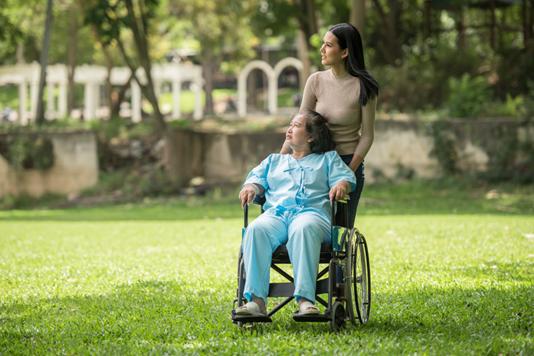Paralysis, marked by the loss of muscle function and sensation, presents significant challenges. While traditional treatments often focus on managing symptoms, Ayurveda, the ancient Indian medicine system, offers a holistic approach that tackles the root causes and supports comprehensive healing.
How Ayurveda Views Paralysis
In Ayurveda, paralysis is linked to imbalances in the body’s three doshas: Vata, Pitta, and Kapha. Vata dosha, which governs movement and nerve function, is particularly relevant. When Vata becomes imbalanced, it can lead to paralysis. Ayurveda seeks to restore this balance to promote healing and functional recovery.
Ayurvedic Treatments for Paralysis
1. Panchakarma Therapy
Panchakarma is a central Ayurvedic treatment involving detoxifying and rejuvenating techniques. For paralysis, the following therapies are especially beneficial:
- Basti (Medicated Enemas): Basti balances Vata, eliminates toxins, and improves nerve function. Tailored herbal oils and remedies address the specific issues of paralysis.
- Abhyanga (Ayurvedic Massage): Regular massages with warm herbal oils strengthen the nervous system, enhance circulation, and ease muscle stiffness.
- Shirodhara (Warm Oil Dripping): Warm herbal oil is gently poured over the forehead to calm the mind, reduce stress, and improve neurological function.
2. Herbal Remedies
Ayurveda utilizes herbs with proven healing benefits:
- Ashwagandha: Boosts vitality and strengthens the nervous system.
- Brahmi: Enhances cognitive function and supports nerve health.
- Turmeric: Reduces inflammation and promotes overall healing.
3. Diet and Lifestyle Adjustments
Diet and lifestyle play a key role in Ayurvedic care:
- Diet: Favor warm, cooked foods and include oils and ghee to balance Vata dosha. Avoid cold, dry, or rough foods.
- Lifestyle: Regular exercise, yoga, and meditation stabilize the body and improve overall well-being.
Yoga and Physical Therapy
Incorporating yoga and physical therapy can significantly aid recovery. Gentle exercises and stretches enhance flexibility, muscle strength, and coordination, supporting overall functional improvement.
Integrating Ayurveda with Conventional Medicine
Ayurveda can complement traditional medical treatments for paralysis. A combined approach involving both Ayurvedic and conventional practices provides a comprehensive, tailored treatment plan.
Conclusion
Ayurveda offers a holistic path to managing paralysis by addressing dosha imbalances, detoxifying the body, and enhancing overall wellness. With Panchakarma therapies, herbal remedies, dietary changes, and lifestyle adjustments, Ayurveda not only supports recovery but also significantly improves the quality of life. Consult a qualified Ayurvedic practitioner and healthcare provider to create a personalized treatment plan.
Embracing Ayurvedic methods can significantly contribute to healing, helping those with paralysis find renewed balance and vitality on their journey to recovery.

